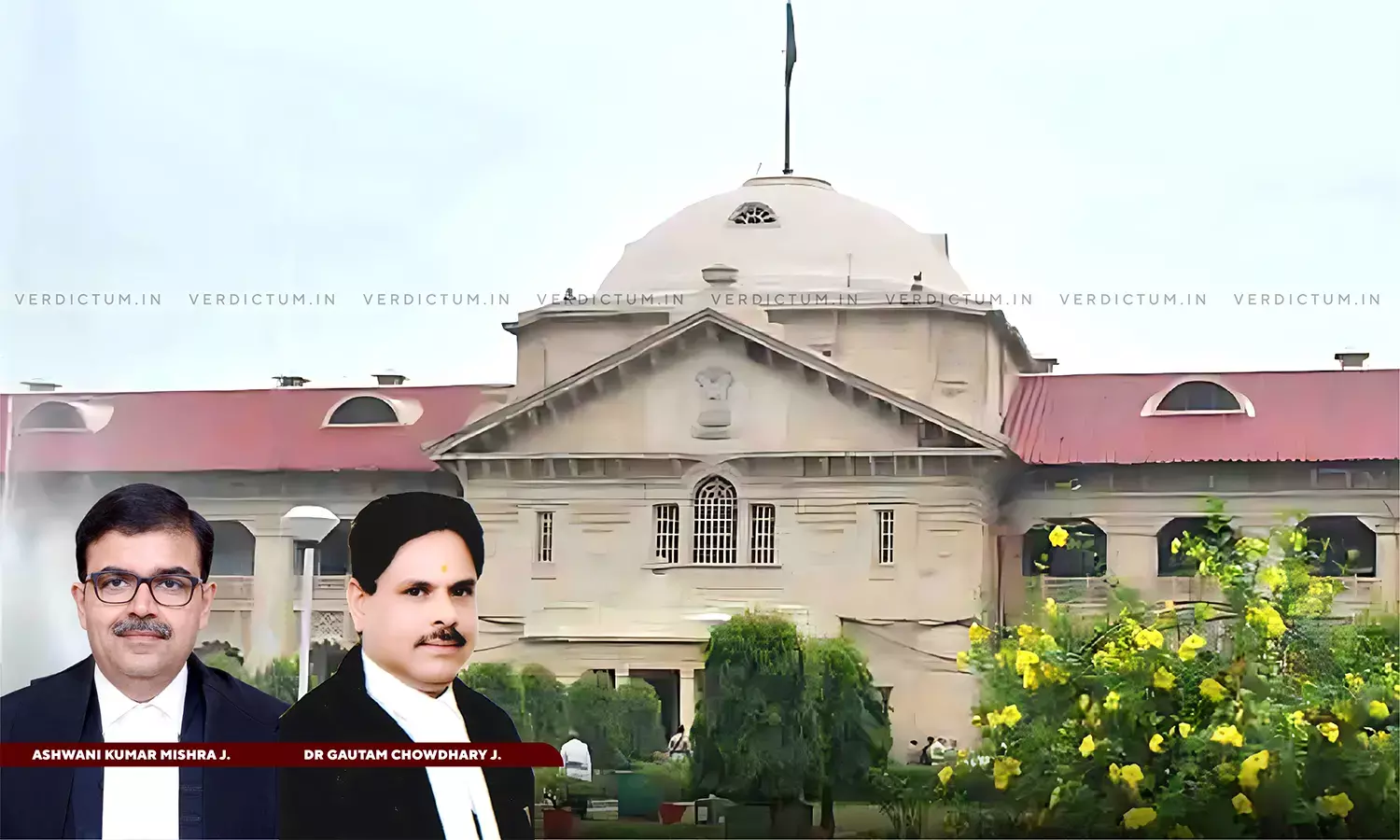Possibility Of Accused Reforming Cannot Be Ruled Out: Allahabad HC Reduces Punishment For Man Convicted For Raping 8-Year-Old Girl
The Allahabad High Court reduced the punishment of an individual convicted for raping an 8-year-old from life imprisonment to 14 years, in accordance with Section 376 of the Indian Penal Code.
The Court was hearing a Criminal Appeal filed by the appellant/accused under Section 376 IPC and POCSO Act against the judgment by which the Appellant has been sentenced to life imprisonment and fine for the offence under Section 376 IPC and 10 years rigorous imprisonment and fine for the offence under Section 3/4 Protection of Children from Sexual Offences Act.
The bench of Justice Ashwani Kumar Mishra and Justice Gautam Chowdhary observed, “…we find that there are no circumstances which can justify awarding excessive punishment to the accused/appellant in the facts of the present case. It is admitted that this is the first offence of the accused/appellant and no such incident has been registered against him before this offence. The possibility of the accused reforming cannot be ruled out.”
Advocate Shashi Kumar Mishra appeared for the Appellant and Additional Government Advocate Vikas Goswami appeared for the Respondent.
Brief Facts-
A complaint was filed by the father of the victim that while his daughters were making cow dung cakes near a school, the convict lured his 8-year-old daughter away with the promise of a toffee. After hearing the victim's screams, the father along with his other children witnessed Pappu assaulting her daughter in a nearby field. The accused fled the scene, leaving the victim with severe injuries. She was taken to a hospital and later referred to the District Hospital in Etawah due to her condition. An FIR was filed, and the case was investigated under Section 376 IPC.
The Court noted that the punishment under Section 376 of the Indian Penal Code ranges from seven years to life imprisonment. “When the Court proceeds to award the maximum permissible sentence for an offence, it is a cardinal principle of law that reasons must be given for awarding such maximum sentence.” the Court said.
The Court mentioned the decision in Babu v. State of U.P. and quoted, “This Court would refer to the following precedents, namely, Mohd. Glasuddin Vs. State of AP, [AIR 1977 SC 1926), explaining rehabilitary & reformative aspects in sentencing it has been observed by the Supreme Court: "Crime is a pathological aberration. The criminal can ordinarily be redeemed and the state has to rehabilitate rather than avenge. The sub- culture that leads to ante-social behaviour has to be countered not by undue cruelty but by reculturization. Therefore, the focus of interest in penology in the individual and the goal is salvaging him for the society. The infliction of harsh and savage punishment is thus a relic of past and regressive times. The human today vies sentencing as a process of reshaping a person who has deteriorated into criminality and the modern community has a primary stake in the rehabilitation of the offender as a means of a social defence. Hence a therapeutic, rather than an 'in terrorem outlook should prevail in our criminal courts, since brutal incarceration of the person merely produces laceration of his mind. If you are to punish a man retributively, you must injure him. If you are to reform him, you must improve him and, men are not improved by injuries."
The Court further quoted, “…keeping in view criminal jurisprudence in our country which is reformative and corrective and not retributive, this Court considers that no accused person is incapable of being reformed and therefore, all measures should be applied to give them an opportunity of reformation in order to bring them in the social stream.”
The Court modified the sentence of life imprisonment awarded to the accused/appellant to 14 years imprisonment under Section 376 of the IPC but retained the sentence of 10 years rigorous imprisonment under the Protection of Children from Sexual Offences Act.
Accordingly, the Court partly allowed the Criminal Appeal.




